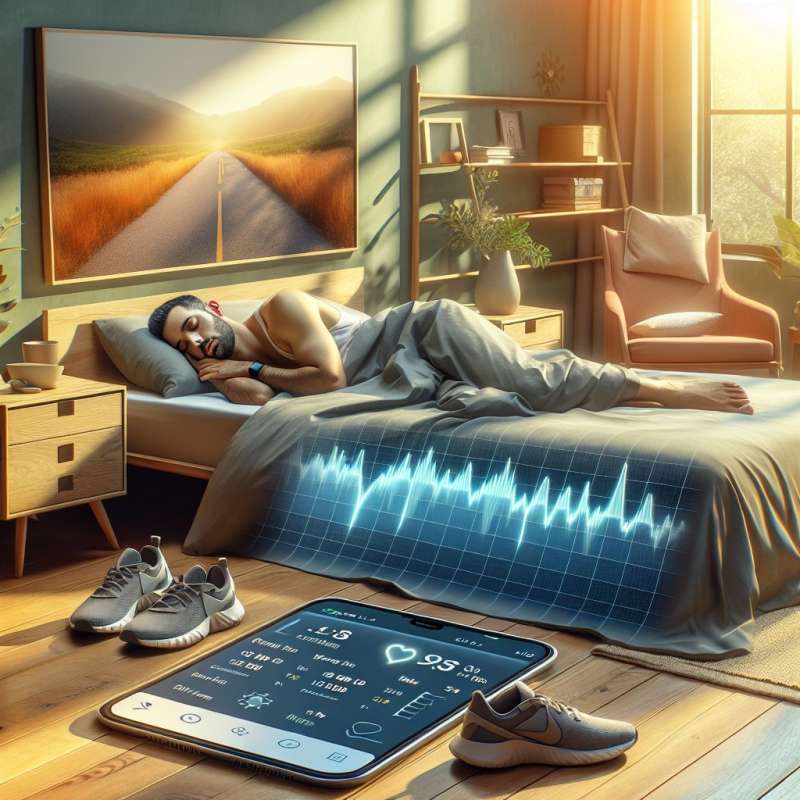
Introduction to Exercise & Sleep
Exploring the intricate relationship between regular physical activity and the improvement of sleep quality. This lesson unveils the hidden benefits exercise has on sleep patterns.
Exercise Boosts Sleep Hormones
Physical activity elevates body temperature. Post-exercise, the temperature drop promotes sleep. Additionally, exercise can increase levels of sleep-promoting hormones like melatonin, particularly with outdoor activity.
Anxiety Reduction Aids Rest
Regular exercise significantly reduces anxiety and depressive symptoms, leading to better sleep quality. It does so by lowering cortisol, the stress hormone, and triggering endorphins, the body's natural mood lifters.
Timing Matters for Impact
The timing of exercise can affect sleep. Morning or afternoon workouts align better with circadian rhythms, whereas evening activities may disrupt sleep due to increased alertness and heart rate.
REM Sleep and Exercise
Vigorous exercisers often experience deeper, more restorative sleep and spend more time in REM sleep, the phase linked with memory and learning, than non-exercisers.
Exercise Battles Sleep Disorders
Routine physical activity can be as effective as medication for insomnia, and can also help combat sleep apnea by improving respiratory strength and oxygen flow.
Long-Term Sleep Benefits
Consistent exercise contributes to a long-term pattern of improved sleep quality and duration, reinforcing a beneficial cycle between sleep and exercise over time.
What does exercise improve regarding sleep?
Sleep quality and patterns
Only sleep duration
Immediate sleep onset
Company